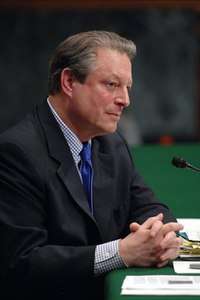United States Senate elections, 1990
|
| ||||||||||||||||||||||||||||||||||||||||
| ||||||||||||||||||||||||||||||||||||||||
Class 2 (33 of the 100) seats in the United States Senate 51 seats needed for a majority | ||||||||||||||||||||||||||||||||||||||||
|---|---|---|---|---|---|---|---|---|---|---|---|---|---|---|---|---|---|---|---|---|---|---|---|---|---|---|---|---|---|---|---|---|---|---|---|---|---|---|---|---|
| ||||||||||||||||||||||||||||||||||||||||
 Results Democratic gain Democratic hold Republican gain Republican hold | ||||||||||||||||||||||||||||||||||||||||
| ||||||||||||||||||||||||||||||||||||||||
The United States Senate elections, 1990 were held on Tuesday, November 6, 1990. The Democratic Party increased its majority with a net gain of one seat from the Republican Party. The election took place in the middle of President George H. W. Bush's term, and, as with most other midterm elections, the party not holding the presidency gained seats in Congress.
These elections featured the smallest seat change in history since the passage of the Seventeenth Amendment in 1913 with only one seat changing parties. That election featured Democrat Paul Wellstone defeating incumbent Republican Rudy Boschwitz in Minnesota. Democrats would later gain a 57th seat after Democrat Harris Wofford was appointed to replace Pennsylvania Republican John Heinz, who had died in a plane crash.
Results summary
| 56 | 44 |
| Democratic | Republican |
| Parties | Total Seats | Popular Vote | ||||
|---|---|---|---|---|---|---|
| 1988 | 1990 | +/- | Vote | % | ||
| Democratic | 55 | 56 | 17,907,544 | 51.12% | ||
| Republican | 45 | 44 | 16,494,624 | 47.09% | ||
| Independent | - | - | - | 222,534 | 0.64% | |
| Libertarian | - | - | - | 142,003 | 0.41% | |
| Others | - | - | - | 260,665 | 0.74% | |
| Total | 100 | 100 | - | 35,027,370 | 100.0% | |
Source: Clerk of the House of Representatives (1991). "Statistics of the Congressional Election of November 6, 1990" (PDF). U.S. Government Printing Office.
Gains, losses, and holds
Democratic gains
- Minnesota: Sen. Rudy Boschwitz (R-MN) lost to his Democratic opponent, college professor Paul Wellstone. Wellstone ran a campaign highlighted by a unique series of political advertisements that helped him pull from behind to defeat two-term incumbent Boschwitz.
Democratic re-elected
- New Jersey: The usually safe Sen. Bill Bradley (D-NJ) suddenly became very vulnerable in the face of an unpopular income tax hike. Bradley refused to take a stand on the tax hike, initiated by Democratic Governor James Florio, which helped his Republican opponent Christine Todd Whitman. Bradley narrowly held his seat, but Whitman used this momentum to defeat Governor Florio in the 1993 gubernatorial election.
Republican holds
- North Carolina: Conservative Sen. Jesse Helms (R-NC) narrowly won re-election over former Charlotte Mayor Harvey Gantt (D). The race featured a late-running ad attacking Gantt's support for affirmative action.
Change in Senate composition
Before the elections
| D1 | D2 | D3 | D4 | D5 | D6 | D7 | D8 | D9 | D10 |
| D20 | D19 | D18 | D17 | D16 | D15 | D14 | D13 | D12 | D11 |
| D21 | D22 | D23 | D24 | D25 | D26 | D27 | D28 | D29 | D30 |
| D40 Ran |
D39 | D38 | D37 | D36 | D35 | D34 | D33 | D32 | D31 |
| D41 Ran |
D42 Ran |
D43 Ran |
D44 Ran |
D45 Ran |
D46 Ran |
D47 Ran |
D48 Ran |
D49 Ran |
D50 Ran |
| Majority → | D51 Ran | ||||||||
| R41 Ran |
R42 Ran |
R43 Retired |
R44 Retired |
R45 Retired |
D55 Ran |
D54 Ran |
D53 Ran |
D52 Ran | |
| R40 Ran |
R39 Ran |
R38 Ran |
R37 Ran |
R36 Ran |
R35 Ran |
R34 Ran |
R33 Ran |
R32 Ran |
R31 Ran |
| R21 | R22 | R23 | R24 | R25 | R26 | R27 | R28 | R29 Ran |
R30 Ran |
| R20 | R19 | R18 | R17 | R16 | R15 | R14 | R13 | R12 | R11 |
| R1 | R2 | R3 | R4 | R5 | R6 | R7 | R8 | R9 | R10 |
After the general elections
| D1 | D2 | D3 | D4 | D5 | D6 | D7 | D8 | D9 | D10 |
| D20 | D19 | D18 | D17 | D16 | D15 | D14 | D13 | D12 | D11 |
| D21 | D22 | D23 | D24 | D25 | D26 | D27 | D28 | D29 | D30 |
| D40 Re-elected |
D39 | D38 | D37 | D36 | D35 | D34 | D33 | D32 | D31 |
| D41 Re-elected |
D42 Re-elected |
D43 Re-elected |
D44 Re-elected |
D45 Re-elected |
D46 Re-elected |
D47 Re-elected |
D48 Re-elected |
D49 Re-elected |
D50 Re-elected |
| Majority → | D51 Re-elected | ||||||||
| R41 Re-elected |
R42 Hold |
R43 Hold |
R44 Hold |
D56 Gain |
D55 Re-elected |
D54 Re-elected |
D53 Re-elected |
D52 Re-elected | |
| R40 Re-elected |
R39 Re-elected |
R38 Re-elected |
R37 Re-elected |
R36 Re-elected |
R35 Re-elected |
R34 Re-elected |
R33 Re-elected |
R32 Re-elected |
R31 Re-elected |
| R21 | R22 | R23 | R24 | R25 | R26 | R27 | R28 | R29 Re-elected |
R30 Re-elected |
| R20 | R19 | R18 | R17 | R16 | R15 | R14 | R13 | R12 | R11 |
| R1 | R2 | R3 | R4 | R5 | R6 | R7 | R8 | R9 | R10 |
After the 1990 special elections
| D1 | D2 | D3 | D4 | D5 | D6 | D7 | D8 | D9 | D10 |
| D20 | D19 | D18 | D17 | D16 | D15 | D14 | D13 | D12 | D11 |
| D21 | D22 | D23 | D24 | D25 | D26 | D27 | D28 | D29 | D30 |
| D40 | D39 | D38 | D37 | D36 | D35 | D34 | D33 | D32 | D31 |
| D41 | D42 | D43 | D44 | D45 | D46 | D47 | D48 | D49 | D50 |
| Majority → | D51 | ||||||||
| R41 | R42 | R43 | R44 Appointee elected |
D56 Appointee elected |
D55 | D54 | D53 | D52 | |
| R40 | R39 | R38 | R37 | R36 | R35 | R34 | R33 | R32 | R31 |
| R21 | R22 | R23 | R24 | R25 | R26 | R27 | R28 | R29 | R30 |
| R20 | R19 | R18 | R17 | R16 | R15 | R14 | R13 | R12 | R11 |
| R1 | R2 | R3 | R4 | R5 | R6 | R7 | R8 | R9 | R10 |
After the 1991 special election
| D1 | D2 | D3 | D4 | D5 | D6 | D7 | D8 | D9 | D10 |
| D20 | D19 | D18 | D17 | D16 | D15 | D14 | D13 | D12 | D11 |
| D21 | D22 | D23 | D24 | D25 | D26 | D27 | D28 | D29 | D30 |
| D40 | D39 | D38 | D37 | D36 | D35 | D34 | D33 | D32 | D31 |
| D41 | D42 | D43 | D44 | D45 | D46 | D47 | D48 | D49 | D50 |
| Majority → | D51 | ||||||||
| R41 | R42 | R43 | D57 Appointee elected |
D56 | D55 | D54 | D53 | D52 | |
| R40 | R39 | R38 | R37 | R36 | R35 | R34 | R33 | R32 | R31 |
| R21 | R22 | R23 | R24 | R25 | R26 | R27 | R28 | R29 | R30 |
| R20 | R19 | R18 | R17 | R16 | R15 | R14 | R13 | R12 | R11 |
| R1 | R2 | R3 | R4 | R5 | R6 | R7 | R8 | R9 | R10 |
| Key: |
|
|---|
Complete list of races
Special election during the 101st Congress
In these special elections, the winner was seated during 1990 or before January 3, 1991, sorted by election date, then state, then class.
| State (linked to summaries below) |
Incumbent | Results | Candidates | ||
|---|---|---|---|---|---|
| Senator | Party | Electoral history | |||
| Hawaii (Class 1) |
Daniel Akaka | Democratic | [Data unknown/missing.] | Interim appointee elected November 6, 1990. | √ Daniel Akaka (Democratic) 54.0% Pat Saiki (Republican) 44.6% Ken Schoolland (Libertarian) 1.4% |
| Indiana (Class 3) |
Dan Coats | Republican | [Data unknown/missing.] | Interim appointee elected November 6, 1990. | √ Dan Coats (Republican) 53.7% Baron Hill (Democratic) 46.3% |
Elections leading to the next Congress
In these general elections, the winners were elected for the term beginning January 3, 1991; ordered by state.
All of the elections involved the Class 2 seats.
| State (linked to summaries below) |
Incumbent | Results | Candidates | ||
|---|---|---|---|---|---|
| Senator | Party | Electoral history | |||
| Alabama | Howell Heflin | Democratic | 1978 1984 |
Incumbent re-elected. | √ Howell Heflin (Democratic) 60.7% William J. Cabaniss (Republican) 39.3% |
| Alaska | Ted Stevens | Republican | 1968 (Appointed) 1970 1972 1978 1984 |
Incumbent re-elected. | √ Ted Stevens (Republican) 67.2% Michael Beasley (Democratic) 32.8% |
| Arkansas | David Pryor | Democratic | 1978 1984 |
Incumbent re-elected. | √ David Pryor (Democratic) Unopposed |
| Colorado | William L. Armstrong | Republican | 1978 1984 |
Incumbent retired. New senator elected. Republican hold. |
√ Hank Brown (Republican) 55.7% Josie Heath (Democratic) 41.6% John Heckman (Concerns of People) 1.5% Earl Dodge (Prohibition) 1.2% |
| Delaware | Joe Biden | Democratic | 1972 1978 1984 |
Incumbent re-elected. | √ Joe Biden (Democratic) 62.7% M. Jane Brady (Republican) 35.8% Lee Rosenbaum (Libertarian) 1.5% |
| Georgia | Sam Nunn | Democratic | 1972 (Special) 1972 1978 1984 |
Incumbent re-elected. | √ Sam Nunn (Democratic) Unopposed |
| Idaho | James A. McClure | Republican | 1972 1978 1984 |
Incumbent retired. New senator elected. Republican hold. |
√ Larry Craig (Republican) 61.3% Ron J. Twilegar (Democratic) 38.7% |
| Illinois | Paul Simon | Democratic | 1984 | Incumbent re-elected. | √ Paul Simon (Democratic) 64.9% Lynn Morley Martin (Republican) 35.1% |
| Iowa | Tom Harkin | Democratic | 1984 | Incumbent re-elected. | √ Tom Harkin (Democratic) 54.0% Tom Tauke (Republican) 46.0% |
| Kansas | Nancy L. Kassebaum | Republican | 1978 1978 (Appointed) 1984 |
Incumbent re-elected. | √ Nancy L. Kassebaum (Republican) 73.6% Dick Williams (Democratic) 26.4% |
| Kentucky | Mitch McConnell | Republican | 1984 | Incumbent re-elected. | √ Mitch McConnell (Republican) 52.2% Harvey I. Sloane (Democratic) 47.8% |
| Louisiana | J. Bennett Johnston | Democratic | 1972 (Appointed) 1972 1978 1984 |
Incumbent re-elected. | √ Bennett Johnston Jr. (Democratic) 53% David Duke (Republican) 44% |
| Maine | William Cohen | Republican | 1972 1978 1984 |
Incumbent re-elected. | √ William Cohen (Republican) 61.4% Neil Rolde (Democratic) 38.6% |
| Massachusetts | John Kerry | Democratic | 1984 | Incumbent re-elected. | √ John Kerry (Democratic) 56.9% Jim Rappaport (Republican) 43.1% |
| Michigan | Carl Levin | Democratic | 1978 1984 |
Incumbent re-elected. | √ Carl Levin (Democratic) 57.5% Bill Schuette (Republican) 41.2% Susan Farquhar (Workers World) 1.3% |
| Minnesota | Rudy Boschwitz | Republican | 1978 1978 (Appointed) 1984 |
Incumbent lost re-election. New senator elected. Democratic gain. |
√ Paul Wellstone (Democratic) 50.4% Rudy Boschwitz (Republican) 47.8% Russell Bentley (Grassroots) 1.6% |
| Mississippi | Thad Cochran | Republican | 1978 1978 (Appointed) 1984 |
Incumbent re-elected. | √ Thad Cochran (Republican) Unopposed |
| Montana | Max Baucus | Democratic | 1978 1978 (Appointed) 1984 |
Incumbent re-elected. | √ Max Baucus (Democratic) 68.1% Allen C. Kolstad (Republican) 29.4% Westley Deitchler (Libertarian) 2.5% |
| Nebraska | J. James Exon | Democratic | 1978 1984 |
Incumbent re-elected. | √ J. James Exon (Democratic) 59.1% Hal Daub (Republican) 40.9% |
| New Hampshire | Gordon J. Humphrey | Republican | 1978 1984 |
Incumbent retired. New senator elected. Republican hold. |
√ Bob Smith (Republican) 65.1% John A. Durkin (Democratic) 31.3% John Elsnau (Libertarian) 3.3% |
| New Jersey | Bill Bradley | Democratic | 1978 1984 |
Incumbent re-elected. | √ Bill Bradley (Democratic) 50.4% Christine Todd Whitman (Republican) 47.4% John L. Kucek (Populist) 1.0% Louis M. Stefanelli (Libertarian) 0.7% Don Mackle (Socialist Workers) 0.4% |
| New Mexico | Pete Domenici | Republican | 1972 1978 1984 |
Incumbent re-elected. | √ Pete Domenici (Republican) 72.9% Tom R. Benavides (Democratic) 27.1% |
| North Carolina | Jesse Helms | Republican | 1972 1978 1984 |
Incumbent re-elected. | √ Jesse Helms (Republican) 52.6% Harvey Gantt (Democratic) 47.4% |
| Oklahoma | David L. Boren | Democratic | 1978 1984 |
Incumbent re-elected. | √ David L. Boren (Democratic) 83.2% Stephen Jones (Republican) 17.8% |
| Oregon | Mark Hatfield | Republican | 1966 1972 1978 1984 |
Incumbent re-elected. | √ Mark Hatfield (Republican) 53.9% Harry Lonsdale (Democratic) 46.1% |
| Rhode Island | Claiborne Pell | Democratic | 1960 1966 1972 1978 1984 |
Incumbent re-elected. | √ Claiborne Pell (Democratic) 61.8% Claudine Schneider (Republican) 38.2% |
| South Carolina | Strom Thurmond | Republican | 1954 1954 (Appointed) 1956 (Resigned) 1956 (Special) 1960 1966 1972 1978 1984 |
Incumbent re-elected. | √ Strom Thurmond (Republican) 64.2% Bob Cunningham (Democratic) 32.5% William H. Griffin (Libertarian) 1.8% Marion C. Metts (American) 1.4% |
| South Dakota | Larry Pressler | Republican | 1978 1984 |
Incumbent re-elected. | √ Larry Pressler (Republican) 52.4% Ted Muenster (Democratic) 45.1% Dean L. Sinclair (Independent) 2.5% |
| Tennessee | Al Gore | Democratic | 1984 | Incumbent re-elected. | √ Al Gore (Democratic) 67.7% William R. Hawkins (Republican) 29.8% Bill Jacox (Independent) 1.4% Charles Gordon Vick (Independent) 1.0% |
| Texas | Phil Gramm | Republican | 1984 | Incumbent re-elected. | √ Phil Gramm (Republican) 60.2% Hugh Parmer (Democratic) 37.4% Gary Johnson (Libertarian) 2.3% |
| Virginia | John Warner | Republican | 1978 1979 (Appointed) 1984 |
Incumbent re-elected. | √ John Warner (Republican) 80.9% Nancy B. Spannaus (Independent) 18.2% |
| West Virginia | Jay Rockefeller | Democratic | 1978 1984 |
Incumbent re-elected. | √ Jay Rockefeller (Democratic) 68.5% John Yoder (Republican) 31.5% |
| Wyoming | Alan K. Simpson | Republican | 1978 1979 (Appointed) 1984 |
Incumbent re-elected. | √ Alan K. Simpson (Republican) 66.4% Kathy Helling (Democratic) 33.6% |
Special elections during the 102nd Congress
In this special election, the winner was elected during this Congress after January 1991, sorted by election date, then state, then class.
| State (linked to summaries below) |
Incumbent | Results | Candidates | ||
|---|---|---|---|---|---|
| Senator | Party | Electoral history | |||
| Pennsylvania (Class 1) |
Harris Wofford | Democratic | 1991 (Appointed) | Interim appointee elected November 5, 1991. | √ Harris Wofford (Democratic) 55.0% Dick Thornburgh (Republican) 45.0% |
Alabama
|
| |||||||||||||||||
| |||||||||||||||||
| |||||||||||||||||
Incumbent Democrat Howell Heflin won re-election to a third term over Republican Bill Cabaniss, State Senator and former State Representative. This is the last time the Democrats have won the Class 2 Senate Seat from Alabama until Doug Jones won the seat in 2017.
| Party | Candidate | Votes | % | ± | |
|---|---|---|---|---|---|
| Democratic | Howell Heflin | 717,814 | 60.67% | -2.00% | |
| Republican | William J. Cabaniss | 467,190 | 39.43% | +3.00% | |
Alaska
|
| |||||||||||||||||
| |||||||||||||||||
| |||||||||||||||||
Incumbent Republican United States Senator Ted Stevens sought re-election to a fourth term in the United States Senate, which he won easily, besting his opponents in a landslide.
| Party | Candidate | Votes | % | |
|---|---|---|---|---|
| Republican | Ted Stevens (Incumbent) | 81,968 | 59.19% | |
| Republican | John Havelock | 34,824 | 25.15% | |
| Democratic | Michael Beasley | 12,371 | 8.93% | |
| Democratic | Tom Taggart | 9,329 | 6.74% | |
| Total votes | 138,492 | 100.00% | ||
| Party | Candidate | Votes | % | ± | |
|---|---|---|---|---|---|
| Republican | Ted Stevens (Incumbent) | 125,806 | 66.23% | -4.94% | |
| Democratic | Michael Beasley | 61,152 | 32.19% | +3.71% | |
| Write-ins | 2,999 | 1.58% | |||
| Majority | 64,654 | 34.04% | -8.65% | ||
| Turnout | 189,957 | ||||
| Republican hold | Swing | ||||
Arkansas
|
| |||||||||||||||||
| |||||||||||||||||
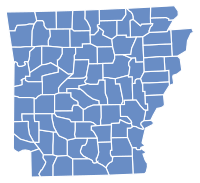 County Results | |||||||||||||||||
| |||||||||||||||||
Incumbent Democrat David Pryor won re-election uncontested.[3]
| Party | Candidate | Votes | % | |
|---|---|---|---|---|
| Democratic | David Pryor | 493,910 | 99.83% | |
| Independent | Betty White (write-in) | 825 | 0.17% | |
| Majority | 493,085 | 99.67% | ||
| Turnout | 494,735 | |||
Colorado
|
| |||||||||||||||||
| |||||||||||||||||
| |||||||||||||||||
Incumbent Republican senator William L. Armstrong did not seek re-election to another term. Republican congressman Hank Brown won the open seat, defeating Democratic nominee Josie Heath, former Boulder County Commissioner[4]
| Party | Candidate | Votes | % | ||
|---|---|---|---|---|---|
| Republican | Hank Brown | 569,048 | 55.68% | ||
| Democratic | Josie Heath | 425,746 | 41.66% | ||
| Concerns of People | John Heckman | 15,432 | 1.51% | ||
| Colorado Prohibition | Earl F. Dodge | 11,801 | 1.15% | ||
| Write-in | Others | 32 | 0.00% | ||
| Majority | 143,302 | 14.02% | |||
| Turnout | 1,022,059 | ||||
| Republican hold | Swing | ||||
Delaware
|
| |||||||||||||||||
| |||||||||||||||||
 County results | |||||||||||||||||
| |||||||||||||||||
Incumbent Democrat Joe Biden won re-election to a fourth term, defeating Republican challenger M. Jane Brady, Deputy Attorney General of Delaware.
| Party | Candidate | Votes | % | ± | |
|---|---|---|---|---|---|
| Democratic | Joe Biden (Incumbent) | 112,918 | 62.68% | +2.57% | |
| Republican | M. Jane Brady | 64,554 | 35.83% | -4.06% | |
| Libertarian | Lee Rosenbaum | 2,680 | 1.49% | ||
| Write-ins | 5 | 0.00% | |||
| Majority | 48,364 | 26.85% | +6.62% | ||
| Turnout | 180,157 | ||||
| Democratic hold | Swing | ||||
Georgia
|
| |||||||||||||||||
| |||||||||||||||||
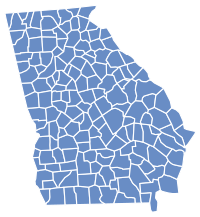 County results | |||||||||||||||||
| |||||||||||||||||
Incumbent Democrat Sam Nunn won re-election to a fourth term uncontested.[3]
| Party | Candidate | Votes | % | ± | |
|---|---|---|---|---|---|
| Democratic | Sam Nunn | 1,033,439 | 100.00% | +20.06% | |
| Majority | 1,033,439 | 100.00% | +40.12% | ||
| Turnout | 1,033,439 | ||||
Hawaii (Special)
|
| |||||||||||||||||
| |||||||||||||||||
 County Results | |||||||||||||||||
| |||||||||||||||||
Incumbent Democrat Daniel Akaka was elected to finish the term ending in 1995 over Republican U.S. Representative Pat Saiki. Akaka had been appointed by Governor John Waihee in April 1990 to serve temporarily after the death of Spark Matsunaga.[6]
| Party | Candidate | Votes | % | |
|---|---|---|---|---|
| Democratic | Daniel Akaka | 188,901 | 53.72 | |
| Republican | Pat Saiki | 155,978 | 44.35 | |
| Libertarian | Ken Schoolland | 6,788 | 1.93 | |
| Majority | 32,923 | 9.36 | ||
| Turnout | 351,666 | |||
Idaho
|
| |||||||||||||||||
| |||||||||||||||||
| |||||||||||||||||
Republican Rep. Larry Craig defeated Democratic former state legislator Ron Twilegar for the seat of U.S. Senator Jim McClure, who did not seek re-election.
| Party | Candidate | Votes | % | |
|---|---|---|---|---|
| Republican | Larry Craig | 65,830 | 59.01% | |
| Republican | Jim Jones | 45,733 | 40.99% | |
| Party | Candidate | Votes | % | |
|---|---|---|---|---|
| Democratic | Ron Twilegar | 30,154 | 64.51% | |
| Democratic | David C. Steed | 16,587 | 35.49% | |
| Party | Candidate | Votes | % | |
|---|---|---|---|---|
| Republican | Larry Craig | 193,641 | 61.29% | |
| Democratic | Ron Twilegar | 122,295 | 38.71% | |
Illinois
|
| |||||||||||||||||
| |||||||||||||||||
|
County results | |||||||||||||||||
| |||||||||||||||||
Incumbent Democrat Paul Simon sought re-election to the United States Senate. Simon was opposed by Republican nominee Lynn Morley Martin, a United States Congresswoman from Illinois's 16th congressional district, whom he easily defeated to win a second and final term in the Senate.
| Party | Candidate | Votes | % | ± | |
|---|---|---|---|---|---|
| Democratic | Paul Simon (Incumbent) | 2,115,377 | 65.07% | +15.00% | |
| Republican | Lynn Morley Martin | 1,135,628 | 34.93% | -13.28% | |
| Majority | 979,749 | 30.14% | +28.28% | ||
| Turnout | 3,251,005 | ||||
| Democratic hold | Swing | ||||
Indiana (Special)
|
| |||||||||||||||||
| |||||||||||||||||
| |||||||||||||||||
Incumbent Republican Dan Coats, who was recently appointed to this seat two years prior, won election to serve out the remainder of the term, beating Democratic State RepresentativeBaron Hill.
During the 1988 presidential election, Republican nominee Vice President George H. W. Bush selected U.S. Senator Dan Quayle of Indiana as his vice presidential nominee. The Bush-Quayle ticket defeated the Dukakis-Bentsen ticket in the general election by a 53%-46% margin, capturing 40 states and 426 electoral votes.
In preparation for the pending vacancy, Governor Robert D. Orr appointed four-term U.S. Representative Dan Coats to fill Quayle's seat on December 12, 1988. Coats was a former aide to Quayle, whom he had succeeded as U.S. Representative for Indiana's 4th congressional district in 1981. Quayle eventually resigned his Senate seat on January 3, 1989, and Coats was immediately sworn into office.
Coats used television commercials that raised questions about Hill's consistency in opposing new taxes, and Hill gained notoriety for walking the length of the state to meet voters.
| Party | Candidate | Votes | % | ± | |
|---|---|---|---|---|---|
| Republican | Dan Coats (Incumbent) | 806,048 | 53.6% | -6.93% | |
| Democratic | Baron Hill | 696,639 | 46.4% | +7.85% | |
| Majority | 109,409 | 7.28% | |||
| Turnout | 1,502,687 | ||||
| Republican hold | Swing | ||||
Iowa
|
| |||||||||||||||||
| |||||||||||||||||
| |||||||||||||||||
Incumbent Democrat Tom Harkin sought re-election to a second term in the United States Senate. Harkin was opposed by Republican United States Congressman Tom Tauke, from Iowa's 2nd congressional district, and both Harkin and Tauke won their primaries uncontested. Though Harkin performed slightly worse than he had six years earlier, he was successful in his re-election bid and defeated Tauke.
| Party | Candidate | Votes | % | |
|---|---|---|---|---|
| Democratic | Tom Harkin (Incumbent) | 162,661 | 99.47 | |
| Democratic | Write-ins | 867 | 0.53 | |
| Total votes | 163,528 | 100.00 | ||
| Party | Candidate | Votes | % | |
|---|---|---|---|---|
| Republican | Tom Tauke | 91,798 | 99.81% | |
| Republican | Write-ins | 172 | 0.19% | |
| Total votes | 91,970 | 100.00% | ||
| Party | Candidate | Votes | % | ± | |
|---|---|---|---|---|---|
| Democratic | Tom Harkin (Incumbent) | 535,975 | 54.47% | -0.98% | |
| Republican | Tom Tauke | 446,869 | 45.42% | +1.76% | |
| Write-ins | 1,089 | 0.11% | |||
| Majority | 89,106 | 9.06% | -2.74% | ||
| Turnout | 983,933 | ||||
| Democratic hold | Swing | ||||
Kansas
|
| |||||||||||||||||
| |||||||||||||||||
| |||||||||||||||||
Incumbent Republican Nancy Kassebaum won re-election her third full term, over Democrat Dick Williams, an educator at Wichita State University[11]
| Party | Candidate | Votes | % | |
|---|---|---|---|---|
| Republican | Nancy Kassebaum (Incumbent) | 578,605 | 73.6% | |
| Democratic | Dick Williams | 207,491 | 26.4% | |
Kentucky
|
| |||||||||||||||||
| |||||||||||||||||
 County results | |||||||||||||||||
| |||||||||||||||||
Incumbent Republican Mitch McConnell won re-election to a second term over Democrat Harvey Sloane, former Mayor of Louisville
| Party | Candidate | Votes | % | |
|---|---|---|---|---|
| Democratic | Harvey I. Sloane | 183,789 | 59.27% | |
| Democratic | John Brock | 126,318 | 40.73% | |
| Total votes | 310,107 | 100.00% | ||
| Party | Candidate | Votes | % | |
|---|---|---|---|---|
| Republican | Mitch McConnell (Incumbent) | 64,063 | 88.52% | |
| Republican | Tommy Klein | 8,310 | 11.48% | |
| Total votes | 72,373 | 100.00% | ||
| Party | Candidate | Votes | % | ± | |
|---|---|---|---|---|---|
| Republican | Mitch McConnell (Incumbent) | 478,034 | 52.19% | +2.28% | |
| Democratic | Harvey I. Sloane | 437,976 | 47.81% | -1.68% | |
| Majority | 40,058 | 4.37% | +3.97% | ||
| Turnout | 916,010 | ||||
| Republican hold | Swing | ||||
Louisiana
|
| |||||||||||||||||
| |||||||||||||||||
| |||||||||||||||||
Incumbent Democrat J. Bennett Johnston, Jr. won re-election to a fourth term and avoided a runoff, beating Republican David Duke, State Representative and former Grand Wizard of the Ku Klux Klan.
This election was viewed at the onset as potentially competitive, as Senator Johnston was viewed as vulnerable in light of Louisiana's economic troubles at the time and Senator Johnston's voting record viewed by Republicans as too liberal. The Republican Party leadership endorsed the candidacy of State Senator Ben Bagert, who was picked over Secretary of State Fox McKeithen, State Representative Quentin Dastugue and State Representative David Duke.[14] David Duke, however, continued his candidacy and slowly overtook Bagert in attention and in the polls. Duke attracted national attention to the race with his involvement with white supremacist groups and his appeals to white resentment over affirmative-action programs. With Bagert failing to gain traction, the National Republican Senatorial Committee tried to recruit former Governor David Treen to jump into the race. When Treen passed, the effort turned from supporting Bagert to stopping Duke.[15]
As the election drew near, polls showed Johnston firmly in first place, with Duke in second place and Bagert trailing far behind at third. National Republicans grew fearful that Bagert's candidacy would only serve to force a runoff and that a potential runoff election with Duke being the de facto Republican nominee would hurt the national brand. On October 4, eight Republican Senators endorsed Johnston, with Senator John Danforth saying at the press conference that "all of us would be embarrassed and mortified to have to serve in the United States Senate with David Duke masquerading as a Republican." Bagert dropped out of the race the next day, announcing that "it became more and more apparent, that instead of forcing a runoff between myself and Bennett Johnston, I might very well be forcing a runoff between somebody else and Bennett Johnston." He announced he would "reluctantly" vote for Johnston.[16] Bagert's name remained on the ballot, but under state law his votes could not be counted as part of the official tally.[17] After Bagert dropped out, HUD Secretary Jack Kemp endorsed Johnston, saying "there's no place in the Republican Party for someone who has practiced and practices racism, bigotry and anti-Semitism."[18]
| Party | Candidate | Votes | % | ||
|---|---|---|---|---|---|
| Democratic | J. Bennett Johnston, Jr. (Incumbent) | 753,198 | 53.95% | ||
| Republican | David Duke | 607,091 | 43.48% | ||
| Democratic | Nick Joseph Accardo | 21,578 | 1.55% | ||
| Democratic | Larry Crowe | 14,345 | 1.03% | ||
| Majority | 146,107 | 10.47% | |||
| Turnout | |||||
| Total votes | 1,396,212 | 100.00% | |||
| Democratic hold | Swing | ||||
Maine
|
| |||||||||||||||||
| |||||||||||||||||
| |||||||||||||||||
Incumbent Republican William Cohen won re-election to a third term over Democratic State Representative Neil Rolde.
| Party | Candidate | Votes | % | |
|---|---|---|---|---|
| Republican | William Cohen (Incumbent) | 319,167 | 61.3% | |
| Democratic | Neil Rolde | 201,053 | 38.6% | |
Massachusetts
|
| |||||||||||||||||
| |||||||||||||||||
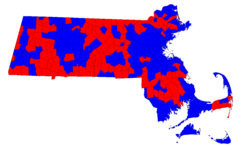 Results by town. Red indicates towns carried by Jim Rappaport, blue indicates towns carried by John Kerry. | |||||||||||||||||
| |||||||||||||||||
Incumbent Democratic U.S. Senator John Kerry was re-elected to his second term over Republican real estate developer Jim Rappaport.
| Party | Candidate | Votes | % | |
|---|---|---|---|---|
| Republican | Jim Rappaport | 265,093 | 66.12% | |
| Republican | Daniel W. Daly | 135,647 | 33.38% | |
| All others | 202 | 0.05% | ||
| Party | Candidate | Votes | % | |
|---|---|---|---|---|
| Democratic | John Kerry | 1,321,712 | 54.51% | |
| Republican | Jim Rappaport | 992,917 | 40.95% | |
| Independent | David Pover | 109,950 | 4.54% | |
| Turnout | 2,424,579 | 100.00% | ||
Michigan
|
| |||||||||||||||||
| |||||||||||||||||
| |||||||||||||||||
Incumbent Democrat Carl Levin won re-election to a third term, beating Republican U.S. Representative Bill Schuette.
| Party | Candidate | Votes | % | |
|---|---|---|---|---|
| Democratic | Carl Levin (Incumbent) | 1,471,753 | 57.4% | |
| Republican | Bill Schuette | 1,055,695 | 41.2% | |
| Workers World | Susan Farquhar | 32,796 | 1.3% | |
Minnesota
|
| |||||||||||||||||
| |||||||||||||||||
| |||||||||||||||||
Incumbent Republican Rudy Boschwitz was defeated by Democratic challenger Paul Wellstone in a tight race. Widely considered an underdog and outspent by a 7-to-1 margin, Wellstone, a professor at Carleton College and nominee for Minnesota State Auditor in 1982 was the only candidate to defeat an incumbent senator in the 1990 election cycle and gained national attention after his upset victory.
| Party | Candidate | Votes | % | |
|---|---|---|---|---|
| DFL | Paul Wellstone | 911,999 | 50.49% | |
| Independent-Republican | Rudy Boschwitz | 864,375 | 47.86% | |
| Grassroots | Russell B. Bentley | 29,820 | 1.65% | |
Mississippi
|
| |||||||||||||||||
| |||||||||||||||||
| |||||||||||||||||
Incumbent Republican Thad Cochran won re-election to a third term.[3]
| Party | Candidate | Votes | % | |
|---|---|---|---|---|
| Republican | Thad Cochran | 274,244 | 100.00% | |
| Majority | 274,244 | 100.00% | ||
| Turnout | 274,244 | |||
Montana
|
| |||||||||||||||||
| |||||||||||||||||
| |||||||||||||||||
Incumbent United States Senator Max Baucus, who was first elected in 1978 and was re-elected in 1984, ran for re-election. After winning the Democratic primary, he moved on to the general election, where he was opposed by Allen Kolstad, the Lieutenant Governor of Montana and the Republican nominee. Baucus ultimately ended up defeating Kolstad in a landslide, winning his third term with ease.
| Party | Candidate | Votes | % | |
|---|---|---|---|---|
| Democratic | Max Baucus (Incumbent) | 80,622 | 82.60% | |
| Democratic | John Driscoll | 12,616 | 12.93% | |
| Democratic | "Curly" Thornton | 4,367 | 4.47% | |
| Total votes | 97,605 | 100.00% | ||
| Party | Candidate | Votes | % | |
|---|---|---|---|---|
| Republican | Allen Kolstad | 38,097 | 43.59% | |
| Republican | Bruce Vorhauer | 30,837 | 35.28% | |
| Republican | Bill Farrell | 11,820 | 13.52% | |
| Republican | John Domenech | 6,648 | 7.61% | |
| Total votes | 87,402 | 100.00% | ||
| Party | Candidate | Votes | % | ± | |
|---|---|---|---|---|---|
| Democratic | Max Baucus (Incumbent) | 217,563 | 68.13% | +11.24% | |
| Republican | Allen Kolstad | 93,836 | 29.38% | -11.31% | |
| Libertarian | Westley F. Deitchler | 7,937 | 2.49% | +0.07% | |
| Majority | 123,727 | 38.75% | +22.55% | ||
| Turnout | 319,336 | ||||
| Democratic hold | Swing | ||||
Nebraska
|
| |||||||||||||||||
| |||||||||||||||||
| |||||||||||||||||
Incumbent Democrat J. James Exon won re-election to a third term, beating Republican U.S. Representative Hal Daub.
| Party | Candidate | Votes | % | ± | |
|---|---|---|---|---|---|
| Democratic | J. James Exon (Incumbent) | 379,933 | 58.90% | +6.97% | |
| Republican | Hal Daub | 243,013 | 40.92% | -7.09% | |
| Write-ins | 1,036 | 0.17% | |||
| Majority | 106,766 | 17.98% | +14.06% | ||
| Turnout | 593,828 | ||||
| Democratic hold | Swing | ||||
New Hampshire
|
| |||||||||||||||||
| |||||||||||||||||
 County results | |||||||||||||||||
| |||||||||||||||||
Incumbent Republican Gordon J. Humphrey decided to retire and not run for re-election to a third term. Republican Bob Smith won the open seat, beating Democratic former Senator John A. Durkin.
| Party | Candidate | Votes | % | |
|---|---|---|---|---|
| Republican | Bob Smith | 189,792 | 65.13% | |
| Democratic | John A. Durkin | 91,299 | 31.33% | |
| Libertarian | John G. Elsnau | 9,102 | 3.34% | |
| Write-In Candidates | 585 | 0.20% | ||
| Majority | 98,493 | 33.80% | ||
| Turnout | 291,393 | |||
New Jersey
|
| |||||||||||||||||
| |||||||||||||||||
|
County Results | |||||||||||||||||
| |||||||||||||||||
Democratic Senator Bill Bradley decided to seek re-election and narrowly edged out little-known Republican Christine Todd Whitman, President of the New Jersey Board of Public Utilities.[3]
Senator Bill Bradley didn't realize he was in trouble of winning re-election and the New Jersey voters' anger over taxes and economy until the week prior to the election.
The senator had a major image problem. In the early part of the campaign Bradley was winning easily in the polls, so his staffers told him to play it safe. He sent out television advertisements of himself walking on the beach, shooting a perfect shot on the court, and sitting back in his office with his basketball shoes onto his desk. The advertisements backfired as voters were turned off and thought that he hadn't taken his job as Senator seriously, at a time when New Jersey voters were suffering.
Another major problem with Bradley was how Democratic Governor Jim Florio implemented a $2.8 billion tax increase, hurting the state's economy. In addition, Bradley refused to answer questions pertaining to Florio's tax policies.
After Bradley realized he was in trouble he released negative advertisements. They attacked Whitman's own record on taxes, accusing her of favoring tax increases when she was a Somerset County Freeholder. Bradley's image may have been further damaged by his newer advertisements.[26]
| Party | Candidate | Votes | % | |
|---|---|---|---|---|
| Democratic | Bill Bradley (Incumbent) | 977,810 | 50.4% | |
| Republican | Christine Todd Whitman | 918,874 | 47.4% | |
| Populist | John Kucek | 19,978 | 1.0% | |
| Libertarian | Louis Stefanelli | 13,988 | 0.7% | |
| Socialist Workers | Don Mackle | 7,804 | 0.4% | |
| Total votes | 1,938,454 | 100.0% | ||
| Democratic hold | ||||
New Mexico
|
| |||||||||||||||||
| |||||||||||||||||
| |||||||||||||||||
Incumbent Republican Pete Domenici won re-election to a fourth term over Democratic State Senator Tom Benavidez.[27]
| Party | Candidate | Votes | % | |
|---|---|---|---|---|
| Republican | Pete Domenici | 296,712 | 72.9% | |
| Democratic | Tom Benavidez | 110,033 | 27.0% | |
North Carolina
|
| |||||||||||||||||
| |||||||||||||||||
|
County Results | |||||||||||||||||
| |||||||||||||||||
The election was fought between the Republican incumbent Jesse Helms and the Democratic nominee Mayor of Charlotte Harvey Gantt. Helms won re-election to a fourth term by a slightly wider margin than the close election in 1984.
Helms drew controversy for airing what became known as the "Hands" ad produced by Alex Castellanos. It showed a pair of white hands with the voiceover saying You wanted this job, but because of a law they had to give it to a minority. The ad prompted allegations of racism.[29]
| Party | Candidate | Votes | % | ± | |
|---|---|---|---|---|---|
| Republican | Jesse Helms (Incumbent) | 157,345 | 84.32% | -6.33% | |
| Republican | L. C. Nixon | 15,355 | 8.23% | N/A | |
| Republican | George Wimbish | 13,895 | 7.45% | -1.90% | |
| Turnout | 186,595 | ||||
| Party | Candidate | Votes | % | ± | |
|---|---|---|---|---|---|
| Democratic | Harvey Gantt | 260,179 | 37.52% | N/A | |
| Democratic | Mike Easley | 209,934 | 30.27% | N/A | |
| Democratic | John Ingram | 120,990 | 17.45% | -8.78% | |
| Democratic | R. P. Thomas | 82,883 | 11.95% | N/A | |
| Democratic | Lloyd Gardner | 11,528 | 1.66% | N/A | |
| Democratic | Robert Hannan | 7,982 | 1.15% | N/A | |
| Turnout | 693,496 | ||||
| Party | Candidate | Votes | % | ± | |
|---|---|---|---|---|---|
| Democratic | Harvey Gantt | 273,567 | 56.89% | +19.37% | |
| Democratic | Mike Easley | 207,283 | 43.11% | +12.84% | |
| Turnout | 480,850 | ||||
| Party | Candidate | Votes | % | ± | |
|---|---|---|---|---|---|
| Republican | Jesse Helms (Incumbent) | 1,089,012 | 52.58% | +0.92% | |
| Democratic | Harvey Gantt | 981,573 | 47.39% | -0.42% | |
| Socialist Workers | Rich Stuart | 681 | 0.03% | -0.08% | |
| Turnout | 2,071,266 | ||||
Oklahoma
Oregon
|
| |||||||||||||||||
| |||||||||||||||||
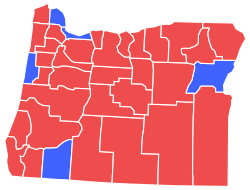 County results | |||||||||||||||||
| |||||||||||||||||
Republican Mark Hatfield was re-elected to a fifth term, defeating Democratic businessman Harry Lonsdale.
The front-runners emerged quickly: for the Republicans, Hatfield was in his fourth term and was the 8th most senior U.S. Senator, having previously served as Governor of Oregon for two terms and Oregon Secretary of State. For the Democrats, Harry Lonsdale, who had founded the biotechnology company Bend Research, announced in early 1990 that he intended to aggressively challenge Hatfield over the incumbent's ties to special interests, and his positions on abortion rights and timber management.[31]
In the Republican primary, Hatfield received a token challenge from Randy Prince, an environmentalist and former Eugene mayoral candidate who had once protested old-growth forest logging by tree sitting for 40 days.[32] Despite an early miscue by Hatfield in which he missed the deadline for submitting a photograph for the primary voter's guide,[32] Hatfield handily defeated Prince to move on to the general election.[33]
| Party | Candidate | Votes | % | |
|---|---|---|---|---|
| Republican | Mark Hatfield | 220,449 | 78.29% | |
| Republican | Randy Prince | 59,970 | 21.30% | |
| Republican | miscellaneous | 1,167 | 0.41% | |
| Total votes | 281,586 | 100.00% | ||
U.S. Congressman Ron Wyden considered challenging Hatfield, but decided against it.[34] Lonsdale, who was unknown as a politician, announced his campaign in March, and came out swinging directly at Hatfield and mostly ignored his primary challengers. Lonsdale's main campaign themes were abortion rights, which Hatfield opposed; and timber management, in which Lonsdale opposed exporting timber from Oregon forests and wanted to restrict logging in old-growth forests.[31] Lonsdale also criticized Hatfield as being out-of-touch with Oregonians after so many years in the Senate. Lonsdale announced that he would refuse to take special-interest contributions in his campaign, and would finance the campaign himself with the millions he had made from Bend Research.[31] Lonsdale easily defeated his competition: Salem attorney Steve Anderson, Pleasant Hill computer programmer Neale S. Hyatt, Milwaukie retired truck driver Brooks Washburne, Eugene activist Bob Reuschlein, and Frank A. Clough, also of Eugene.[31][35][36]
| Party | Candidate | Votes | % | |
|---|---|---|---|---|
| Democratic | Harry Lonsdale | 162,529 | 64.13% | |
| Democratic | Steve Anderson | 34,305 | 13.54% | |
| Democratic | Neale S. Hyatt | 20,684 | 8.16% | |
| Democratic | Brooks Washburne | 13,766 | 5.43% | |
| Democratic | Bob Reuschlein | 12,383 | 4.89% | |
| Democratic | Frank Clough | 8,235 | 3.25% | |
| Democratic | miscellaneous | 1,535 | 0.61% | |
| Total votes | 253,437 | 100.00% | ||
Once the primaries concluded, Hatfield, who had been first elected U.S. Senator in 1966, rolled out his usual campaign honed from his decades of experience: he refused debates, never engaged his opponent directly, and focused on small, friendly campaign appearances that stressed the influence he wielded as a U.S. Senator with seniority and influence.[34]
Lonsdale's self-financed campaign made heavy use of TV attack ads, criticizing Hatfield as being out of step with Oregonians on every issue, but primarily in terms of timber and abortion. He also made use of a nationwide anti-incumbency sentiment, and tore into Hatfield for being too closely tied to Washington special interests, and attempted to tie Hatfield to the Savings and loan crisis of the mid-1980s through his advisor Gerry Frank of the Meier & Frank chain of Oregon department stores, who had ties to a Salem savings and loan.[34] By early October, polls showed the gap closing from 25 down to about 4 points in an early October poll conducted by The Oregonian newspaper, and by the end of October, some polls showed Lonsdale in the lead.[37]
With the polls running against him and time running out, Hatfield, who had not been seriously challenged since first being elected in 1966 and had never lost an election,[38] abandoned his tactic of staying above the fray and not engaging Lonsdale directly. In the media and in television ads, he charged Lonsdale with hypocrisy in his environmental stand, alleging that Lonsdale had allowed his company to illegally dump toxic chemicals into the environment.[39] Lonsdale vigorously denied the charges, which were later shown to have violated no laws, but the tactic may have stalled Lonsdale's momentum.[40] Hatfield went on to win in all but Multnomah, Jackson, Baker, and Lincoln counties to win by more than 7 percentage points statewide.[38]
| Party | Candidate | Votes | % | |
|---|---|---|---|---|
| Republican | Mark Hatfield | 590,095 | 53.68% | |
| Democratic | Harry Lonsdale | 507,743 | 46.19% | |
| Write-In | Misc. | 1,417 | 0.13% | |
| Total votes | 1,099,255 | 100.00% | ||
| Republican hold | ||||
Pennsylvania (Special)
|
| |||||||||||||||||
| |||||||||||||||||
| |||||||||||||||||
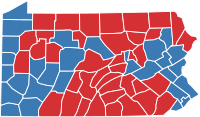 County results | |||||||||||||||||
| |||||||||||||||||
The special election was held November 5, 1991. Incumbent Democratic appointee and former Pennsylvania Secretary of Labor Harris Wofford won the special election that was held because of the death of Republican Senator John Heinz on April 4 of that year. He beat Republican Dick Thornburgh, the former Governor and U.S. Attorney General. Wofford was appointed by Governor Robert P. Casey Sr. to serve until the special election which he subsequently won here. Major-party candidates for this election were chosen by party committees, as the vacancy had happened too late for a primary to be held.
House Majority Whip William H. Gray was a potential candidate for the Democrats, but he declined to run and surprisingly resigned from Congress in 1991 to serve as President of the United Negro College Fund from 1991 to 2004. The move was considered a complete surprise and prompted questions as to why he had done so. There was widespread speculation that he had been the subject of an investigation into alleged campaign finance irregularities and a grand jury investigation into his church's financial dealings. He was reported to have struck a deal with Republican Dick Thornburgh, the United States Attorney General and former Governor of Pennsylvania, that he would not run in the special election and in return Thornburgh would drop the investigation into him. Thornburgh went on to run but lost in an upset to Democrat Harris Wofford.[42][43][44][45][46]
Wofford's win was impressive because as little as 5 months before the election, polling showed him to be trailing Thornburgh by upwards of 40 points. Both the state and national Democratic establishment was tepid toward Wofford's campaign, feeling that Governor Casey had missed a prime opportunity to select a top tier candidate and had instead created a situation where Republicans would take back the seat just months after losing it. In conjunction with his fundraising issues, Wofford also had difficulty communicating his message to the voters; because he had a bureaucratic as opposed to a political background, he spoke in a somewhat long-winded manner that received criticism in the media. With his large lead in the polls, Thornburgh laid back to avoid mistakes, which allowed Wofford to gain traction. Despite his elite upbringing, Wofford connected well with working class voters as he made access to healthcare a huge plank of his campaign. He also successfully derided Thornburgh for his connections to the president, as Bush's popularity was steeply declining due to a recession.[47]
Thornburgh was unable to mount credible attacks against Wofford until after the Democrat had already established himself. As a result, Wofford was not only victorious in traditionally Democratic areas, such as Philadelphia city, Scranton, and metro Pittsburgh, but he also ran well in GOP strongholds. Wofford won three of the four suburban Philadelphia counties, which, although socially liberal, were strongly aligned with Republicans; the "roll-up-your-sleeves" style campaign ran by Wofford also allowed him to perform stronger than most Democrats in rural regions and to even win several usually Republican counties with a strong labor base.[47]
Democrats did very well across the state including in Allegheny County (Pittsburgh) and Philadelphia County (Philadelphia).
| Party | Candidate | Votes | % | ± | |
|---|---|---|---|---|---|
| Democratic | Harris Wofford (Incumbent) | 1,860,760 | 55.01% | +22.56% | |
| Republican | Dick Thornburgh | 1,521,986 | 44.99% | -21.46% | |
| Majority | 338,774 | 10.01% | -23.99% | ||
| Totals | 3,382,746 | 100.00% | |||
Rhode Island
|
| |||||||||||||||||
| |||||||||||||||||
 County Results | |||||||||||||||||
| |||||||||||||||||
Democratic Incumbent Claiborne Pell defeated Republican Representative Claudine Schneider in a landslide.[48]
| Party | Candidate | Votes | % | ± | |
|---|---|---|---|---|---|
| Democratic | Claiborne Pell (Incumbent) | 225,105 | 61.83% | -10.83% | |
| Republican | Claudine Schneider | 138,947 | 38.17% | +10.83% | |
| Majority | 86,158 | 23.67% | -21.65% | ||
| Turnout | 364,062 | ||||
| Democratic hold | Swing | ||||
South Carolina
|
| |||||||||||||||||
| |||||||||||||||||
| |||||||||||||||||
Popular incumbent Republican Strom Thurmond cruised to re-election against Democratic challenger Bob Cunningham.
Senator Strom Thurmond faced no opposition from South Carolina Republicans and avoided a primary election. The state Democrats saw this as an unwinnable race so when Bob Cunningham sought the Democratic nomination, he was unopposed in his bid.
Cunningham, a retired intelligence officer, had little chance of defeating Strom Thurmond and the election was never a serious contest. Thurmond overwhelmingly outspent Cunningham in his re-election campaign.
| Party | Candidate | Votes | % | ± | |
|---|---|---|---|---|---|
| Republican | Strom Thurmond | 482,032 | 64.2% | -2.6% | |
| Democratic | Bob Cunningham | 244,112 | 32.5% | +0.7% | |
| Libertarian | William H. Griffin | 13,804 | 1.8% | +0.4% | |
| American | Marion C. Metts | 10,317 | 1.4% | +1.4% | |
| No party | Write-Ins | 464 | 0.1% | +0.1% | |
| Majority | 237,920 | 31.7% | -3.3% | ||
| Turnout | 750,729 | 55.2% | -13.5% | ||
| Republican hold | |||||
South Dakota
Tennessee
|
| |||||||||||||||||
| |||||||||||||||||
 Results by county | |||||||||||||||||
| |||||||||||||||||
Democratic Senator Al Gore won re-election to a second term over Republican William R. Hawkins, a conservative author. As of 2016, this is the last Senate election in Tennessee that was won by a Democrat and the last time they won the state's Class 2 Senate Seat.
| Party | Candidate | Votes | % | |
|---|---|---|---|---|
| Democratic | Al Gore (Incumbent) | 302,768 | 100.00% | |
| Total votes | 302,768 | 100.00% | ||
| Party | Candidate | Votes | % | |
|---|---|---|---|---|
| Democratic | Al Gore (Incumbent) | 529,914 | 67.72% | |
| Republican | William R. Hawkins | 233,324 | 29.92% | |
| Independent | Bill Jacox | 11,172 | 1.43% | |
| Independent | Charles Gordon Vick | 7,995 | 1.02% | |
| Write-ins | 109 | 0.01% | ||
| Democratic hold | ||||
Texas
|
| |||||||||||||||||
| |||||||||||||||||
|
County Results | |||||||||||||||||
| |||||||||||||||||
Incumbent Republican Phil Gramm won re-election to a second term, beating Hugh Parmer, State U.S. Senator and former Mayor of Fort Worth[50]
Gramm, a popular incumbent who switched parties a few year prior, had over $5 million on hand.[51]
| Party | Candidate | Votes | % | |
|---|---|---|---|---|
| Republican | Phil Gramm | 2,302,357 | 60.2% | |
| Democratic | Hugh Parmer | 1,429,986 | 37.4% | |
| Libertarian | Gary Johnson | 89,089 | 2.4% | |
| Write In | Ira Calkins | 725 | 0.0% | |
Virginia
|
| |||||||||||||||||
| Turnout | 25.5% (voting eligible)[53] | ||||||||||||||||
|---|---|---|---|---|---|---|---|---|---|---|---|---|---|---|---|---|---|
| |||||||||||||||||
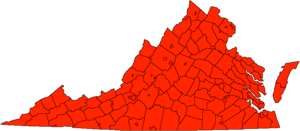 U.S. Senate election results map. Red denotes counties/districts won by Warner. | |||||||||||||||||
| |||||||||||||||||
Incumbent Republican John W. Warner won re-election to a third term. No Democrat filed to run against him as he won every single county and city in the state with over 60% of the vote. Independent Nancy B. Spannaus (an affiliate of the controversial Lyndon LaRouche) got 18% of the vote, as she was the only other candidate on the ballot besides Warner.
| Party | Candidate | Votes | % | ± | |
|---|---|---|---|---|---|
| Republican | John Warner (Incumbent) | 876,782 | 80.91% | +10.86% | |
| Independent | Nancy Spannaus | 196,755 | 18.16% | ||
| Write-ins | 10,153 | 0.94% | +0.93% | ||
| Majority | 680,027 | 62.75% | +22.65% | ||
| Turnout | 1,083,690 | ||||
| Republican hold | Swing | ||||
West Virginia
Wyoming
See also
Notes
- ↑ "Our Campaigns - AL US Senate Race - Nov 06, 1990". www.ourcampaigns.com. Retrieved 20 December 2017.
- ↑ http://www.elections.alaska.gov/results/90PRIM/90prim.pdf
- 1 2 3 4 5 6 7 8 9 10 11 12 13 14 15 Clerk of the House of Representatives (1991). "Statistics of the Congressional Election of November 6, 1990" (PDF). U.S. Government Printing Office.
- ↑ "Colorado Voters Pick Candidates for Senate Race". New York Times. Associated Press. August 16, 1990. Retrieved January 22, 2014.
- ↑ Leip, David. "1992 U.S. Senatorial General Election Results - Colorado". U.S. Election Atlas. Retrieved February 27, 2013.
- ↑ "Our Campaigns - HI US Senate - Special Election Race - Nov 06, 1990". www.ourcampaigns.com. Retrieved 20 December 2017.
- ↑ "ID US Senate- R Primary Race - May 22, 1990". Our Campaigns. Retrieved February 4, 2014.
- ↑ "ID US Senate- D Primary Race - May 22, 1990". Our Campaigns. Retrieved February 4, 2014.
- ↑ "ID US Senate Race - Nov 06, 1990". Our Campaigns. Retrieved February 4, 2014.
- 1 2 http://sos.iowa.gov/elections/pdf/results/90s/1990primcanv.pdf
- ↑ "The Fort Scott Tribune - Google News Archive Search". news.google.com. Retrieved 20 December 2017.
- ↑ "Our Campaigns - KS US Senate Race - Nov 05, 1996". www.ourcampaigns.com. Retrieved 20 December 2017.
- 1 2 http://www.elect.ky.gov/NR/rdonlyres/E334BE0F-44D1-46FE-9E1F-5C3421133F1A/6239/res_ussenate1.txt
- ↑ Press, From Associated (14 January 1990). "Louisiana GOP Refuses to Back Duke for Senate". Retrieved 20 December 2017 – via LA Times.
- ↑ BROWNSTEIN, RONALD (7 October 1990). "Johnston Beats Duke, 54-43%, in Louisiana". Retrieved 20 December 2017 – via LA Times.
- ↑ Applebome, Peter; Times, Special to The New York (5 October 1990). "Republican Quits Louisiana Race In Effort to Defeat Ex-Klansman". Retrieved 20 December 2017 – via NYTimes.com.
- ↑ Press, from Associated (7 October 1990). "Johnston Takes Lead Over Duke in Louisiana". Retrieved 20 December 2017 – via LA Times.
- ↑ Applebome, Peter; Times, Special to The New York (7 October 1990). "Former Klan Figure Loses to Incumbent In Louisiana Voting". Retrieved 20 December 2017 – via NYTimes.com.
- ↑ http://staticresults.sos.la.gov/10061990/10061990_Congressional.html
- ↑ "Our Campaigns - ME US Senate Race - Nov 06, 1990". www.ourcampaigns.com. Retrieved 20 December 2017.
- ↑ "Our Campaigns - MA US Senate- R Primary Race - Sep 18, 1990". www.ourcampaigns.com. Retrieved 20 December 2017.
- ↑ Parker, Randy; Reporting for Duty (April 9, 2005). "Our Campaigns: MI U.S. Senate". Our Campaigns.
- ↑ "Our Campaigns - MN US Senate Race - Nov 06, 1990". www.ourcampaigns.com. Retrieved 20 December 2017.
- 1 2 "Report of the Official Canvass of the Vote Cast at the Primary Election Held in the State of Montana, June 5, 1990" (PDF). Montana Secretary of State. Retrieved July 2, 2014.
- ↑ "Our Campaigns - NH US Senate Race - Nov 06, 1990". www.ourcampaigns.com. Retrieved 20 December 2017.
- ↑ King, Wayne; Times, Special to The New York (8 November 1990). "THE 1990 ELECTIONS: What Went Wrong?; Bradley Says He Sensed Voter Fury But It Was Too Late to Do Anything". Retrieved 20 December 2017 – via NYTimes.com.
- ↑ "Our Campaigns - Candidate - Tom Benavidez". www.ourcampaigns.com. Retrieved 20 December 2017.
- ↑ "Our Campaigns - NM US Senate Race - Nov 05, 1996". www.ourcampaigns.com. Retrieved 20 December 2017.
- ↑ 27, Jamelle BouieTwitter July; 2012 (27 July 2012). "Apparently, the 'Real Racists' Are… Anti-Racists?". Retrieved 20 December 2017.
- 1 2 3 4 "North Carolina DataNet #46" (PDF). University of North Carolina. April 2008. Archived from the original (PDF) on July 25, 2008. Retrieved June 12, 2009.
- 1 2 3 4 Attle, Rick (March 5, 1990). "Lonsdale blast launches Senate campaign". The Bulletin. Retrieved March 31, 2011.
- 1 2 "If you're looking for Hatfield..." The Register-Guard. March 16, 1990. Retrieved March 31, 2011.
- 1 2 "Oregon US Senate Republican Primary Race, May 15, 1990". ourcampaigns.com. Retrieved March 31, 2011.
- 1 2 3 Walth, Brent (October 21, 1990). "Hatfield shifts gears in race". The Register-Guard. Retrieved March 31, 2011.
- ↑ Boyd, Jim (March 9, 1990). "2nd Eugene man enters Senate race". The Register-Guard. Retrieved March 31, 2011.
- 1 2 "Oregon US Senate Democratic Primary Race, May 15, 1990". ourcampaigns.com. Retrieved March 31, 2011.
- ↑ Walth, Brent (October 23, 1990). "Lonsdale leads race, poll shows". The Register-Guard. Retrieved March 31, 2011.
- 1 2 "Hatfield overcomes Lonsdale, anti-incumbent mood to win". The Bulletin. November 7, 1990. Retrieved March 31, 2011.
- ↑ "State will look at claims of Bend Research dumping". The Register-Guard. October 19, 1990. Retrieved March 31, 2011.
- ↑ Walth, Brent (March 21, 1992). "Lonsdale Firm's Hazardous Waste Violated No Rules". The Register-Guard. Retrieved March 31, 2011.
- ↑ "Oregon US Senate Race, Nov 6, 1990". ourcampaigns.com. Retrieved March 31, 2011.
- ↑ "Did Dick Cut Bill A Deal? Book: Thornburgh Had Goods On Gray - Philly.com". Articles.philly.com. March 25, 2011. Retrieved July 26, 2013.
- ↑ Moore, Alexis (June 20, 1991). "Why Would Gray Resign? Several Ideas Are Floated - Philly.com". Articles.philly.com. Retrieved July 26, 2013.
- ↑ "Thornburgh Aide Linked to Gray Leak : Congress: A Justice Department probe says the chief spokesman and an ex-FBI official confirmed a damaging report on House Democratic leader. - Los Angeles Times". Articles.latimes.com. April 20, 1990. Retrieved July 26, 2013.
- ↑ Stone, Chuck (June 13, 1990). "Editorials & Opinion | The Conniving Ways Of Dick Thornburgh | Seattle Times Newspaper". Community.seattletimes.nwsource.com. Retrieved July 26, 2013.
- ↑ Black Americans in Congress, 1870-2007 - Google Books. Books.google.co.uk. August 27, 2012. Retrieved July 26, 2013.
- 1 2 Kennedy, John J. (2006). Pennsylvania elections : statewide contests from 1950-2004. Lanham, Md.: University Press of America. pp. 68–70. ISBN 0761832793.
- ↑ "Our Campaigns - RI US Senate Race - Nov 06, 1990". www.ourcampaigns.com. Retrieved 20 December 2017.
- ↑ http://uselectionatlas.org/RESULTS/state.php?year=1990&fips=47&off=3&class=2&elect=0&f=1
- ↑ "Archives | Austin American-Statesman | Statesman.com". Nl.newsbank.com. July 1, 1990. Retrieved January 9, 2011.
- ↑ "dallasnews.com | Archives". Nl.newsbank.com. October 17, 1990. Retrieved January 9, 2011.
- ↑ "TX US Senate Race - Nov 06, 1990". Our Campaigns. Retrieved January 9, 2011.
- ↑ Dr. Michael McDonald (March 25, 2013). "Turnout 1980-2012". George Mason University. Archived from the original on October 30, 2012. Retrieved April 3, 2013.
References
- State Election Commission (1991). South Carolina Election Commission Annual Report 1990-1991. Columbia, SC: The Commission. p. 91.
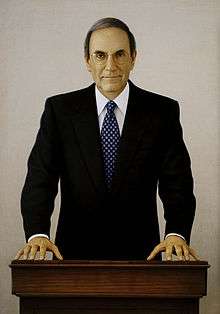
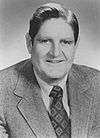
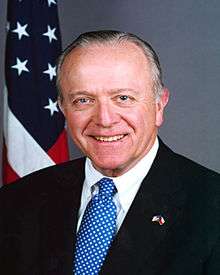
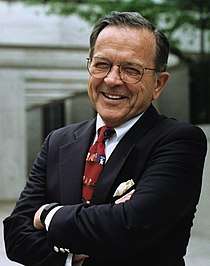

.jpg)
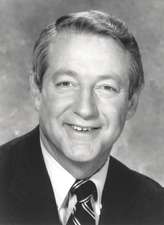
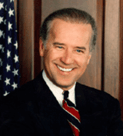
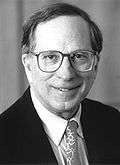
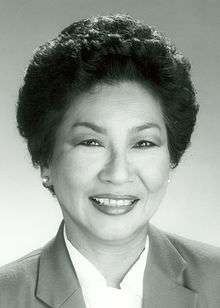
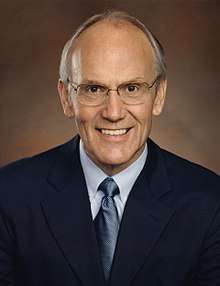
.jpg)

.jpg)
.jpg)

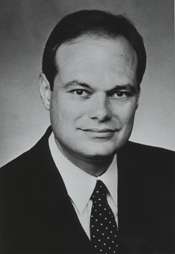
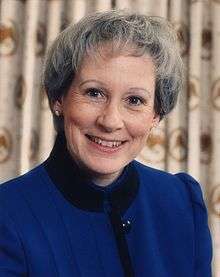
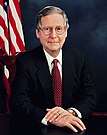
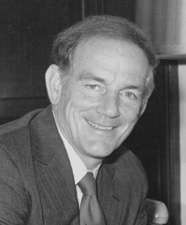

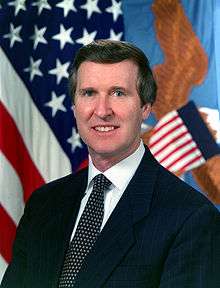
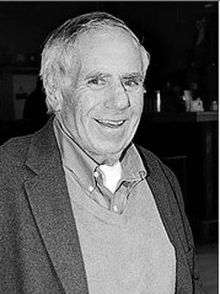

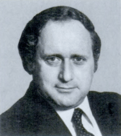

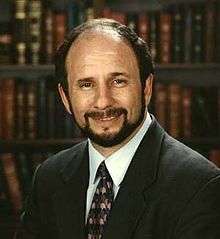
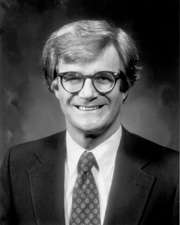
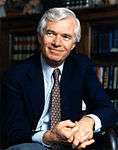
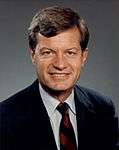
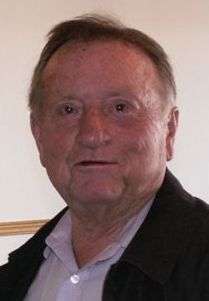
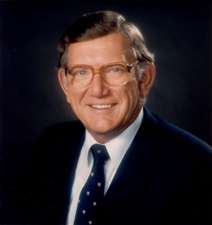
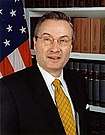


.jpg)
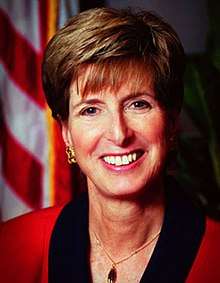
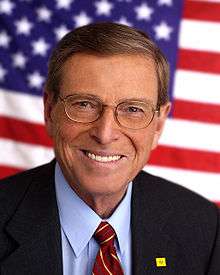
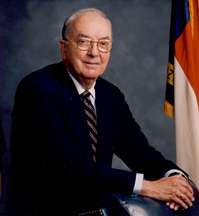
.png)
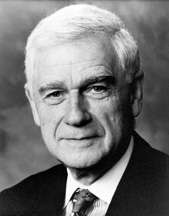
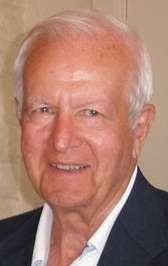

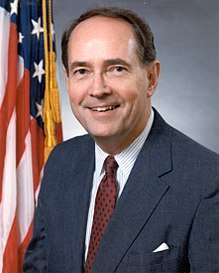
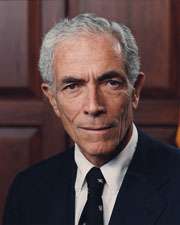

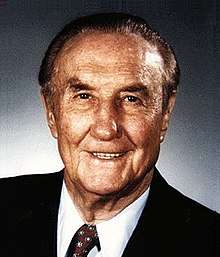

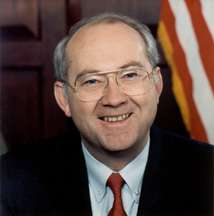
.jpg)
